Montreal GP: Ferrari honest about mistakes, but can look to positives
- Published
- comments
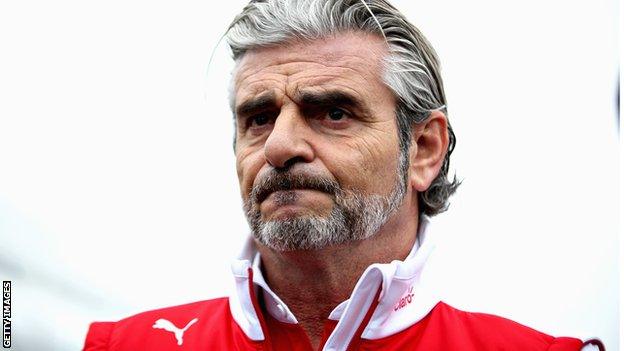
Team principal Maurizio Arrivabene admitted Ferrari got their strategy wrong in Canada
The starkness of the comment was striking.
It is unusual for any Formula 1 boss to openly admit their team have made an error; and from Ferrari's Maurizio Arrivabene - any Ferrari team principal, for that matter - it is rarer than most.
But after the Canadian Grand Prix, there was no mistaking Arrivabene's message when he was asked about the fateful strategy decision that probably cost Sebastian Vettel victory in the Canadian Grand Prix.
"We overestimated the degradation of the tyres," Arrivabene said. "This is the reason we called him in. It was the wrong decision."
And so it was.
A much-needed opportunity missed
It has been a frustrating start to the season for Ferrari, who have talked themselves up - and been talked up by Mercedes - but, before the weekend in Montreal, had only flattered to deceive.
Around the Circuit Gilles Villeneuve, though, they finally looked like the real deal.
Vettel missed out on pole position by less than 0.2 seconds, and had to be content with third on the grid behind Mercedes team-mates Lewis Hamilton and Nico Rosberg. But he was optimistic of a decent race, and his blistering start made a win look on.
It was the sort of start that helped form the legend of one of Ferrari's biggest heroes, Gilles Villeneuve, back in the late 1970s and early '80s - on a completely different scale than every other car on the grid.
The new rules introduced this year, restricting the assistance drivers can receive from both the pit wall and in the car, have made this sort of disparity possible again.
Hamilton is suffering at one end of the spectrum; Vettel benefiting at the other. And in Canada, the four-time champion got off the line as if powered by a rocket, and was past both Mercedes within 100 metres or so.
From there, he tried to run the start of the race as he did in his Red Bull days - build a quick lead with a blistering first couple of laps and then hold it, eking out the tyres, keeping his rivals at arm's length.
Hamilton admitted to being impressed by the Ferrari's initial pace, but a fastest lap by the world champion on lap three made it obvious it would not be that easy. And from there Hamilton was comfortably able to sit within 1.5 seconds of the Ferrari - the smallest margin a driver can allow before risking wrecking the fragile Pirelli tyres.
Still, track position is critical in F1, especially between cars that are relatively evenly matched, even on a circuit on which overtaking is as common as it is in Montreal.
Critically - and oddly - Ferrari chose to surrender it.
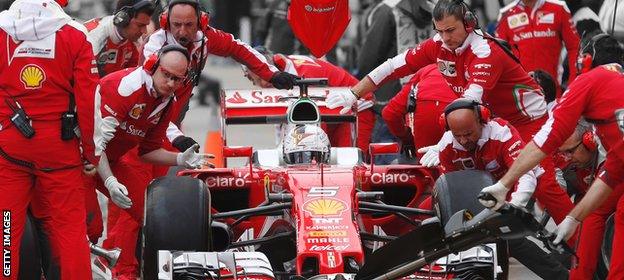
Ferrari once again came unstuck with their strategy after calling Vettel into the pits early in the race - a decision that ultimately cost him the win
It made sense on a micro level - the virtual safety car was enforced while Jenson Button's smoking and broken McLaren-Honda was recovered, and Ferrari took the opportunity afforded by everyone being held to a slow pace to make a pit stop that as a result would cost less time than normal.
But on a macro level, it was a misjudgement.
Hamilton did not stop - and would only do so once. So to get the lead back and win the race, Vettel would now have to a) pass the two Red Bulls while also trying to close down Hamilton's lead; b) prevent Hamilton from closing in on him after the Briton's sole pit stop when the Mercedes would have fresher tyres; and c) catch and then pass a fundamentally faster car in the final stint of the race.
That was always going to be a long shot.
There were echoes here of the first race of the season in Australia, when Vettel was again leading unexpectedly after a stunning start, and Ferrari again chose to surrender it.
Back then it was by switching to super-soft tyres when the race was stopped, forcing themselves to stop again, while Mercedes went for tyres that would get them to the end of the race.
A real team player
If Vettel was cross at losing his second potential win in seven races, he hid it very well.
"We have very strong people on board making decisions and I don't want them to be criticised," he said.
"With hindsight it is always very easy, but I will always defend what we did."
It's not hard to see at times like this why Ferrari love Vettel. Like Michael Schumacher before him, he believes that if hard words are to be said, it should be behind closed doors; anything else is counter-productive.
Ferrari technical director James Allison - who has worked with an elite group of drivers that includes Schumacher and Fernando Alonso - recognises this as one of Vettel's greatest strengths.
"I have worked with two guys who really, really understand the value of being in a team and one was Michael and the other is Sebastian," he told BBC F1's Tom Clarkson last season.
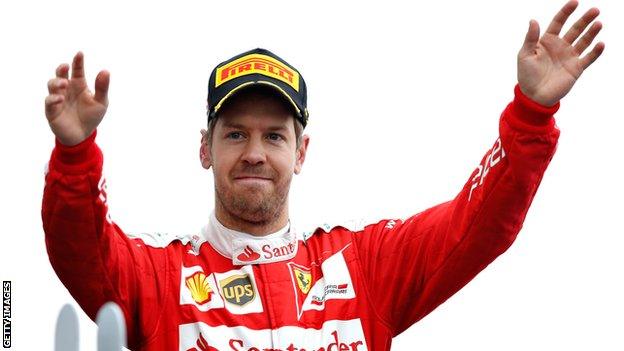
Sebastian Vettel illustrated his value as a team player to Ferrari by dealing with the disappointment of Montreal so professionally
On the plus side
The positives for Ferrari go beyond Vettel's attitude, though. Most importantly, they were genuinely quick again, even if not quite on Mercedes' pace.
It has been an odd season for the Maranello team. Mercedes have always insisted their concern about Ferrari is genuine, saying the car has real speed, but that circumstances had prevented them showing it.
You could see what they meant. First there was the strategy bungle in Australia. Then in Bahrain an engine failure on the formation lap for Vettel and a bad start for team-mate Kimi Raikkonen put them out of the fight for victory.
In China, Vettel and Raikkonen collided at the first corner; in Russia, Vettel was taken out on the first lap by Red Bull's Daniil Kvyat. In Spain, they bungled Vettel's strategy trying to pass the Red Bulls.
But the longer it has gone on, the more it has looked like Ferrari were not quite there.
They would appear to be quick in practice, only for Mercedes to stretch ahead in when it mattered.
In both Spain and Monaco, they mysteriously lost pace in qualifying, blaming not getting the difficult-to-manage Pirelli tyres in the right operating window.
Their understanding of the tyres' vagaries does seem behind that of Mercedes - and perhaps this led to their mistake on Sunday.
Before Canada, Ferrari's average qualifying deficit to Mercedes was only 0.075secs less than it had been in 2015 - and was a still-massive 0.779secs.
For Montreal, they introduced a new turbo, and it seemed to make a big difference, Vettel qualifying only 0.178secs off pole, and was strong - if not quite Mercedes fast - in the race.
"We desperately wanted to win," Vettel said. "We didn't, but we showed the car is quick, it has potential. We are moving forward with a lot of confidence. The team is on a great path."
It will take more races to judge whether Canada was a one-off. But at least Ferrari have something to hang on to again.
"Look where the car and engine were in 2014 and look where we are now," Vettel said. "The team is making immense progress and we are challenging an opponent who two years ago was supposed to be untouchable. There will be a point when we start to be ahead."
Hamilton on a roll
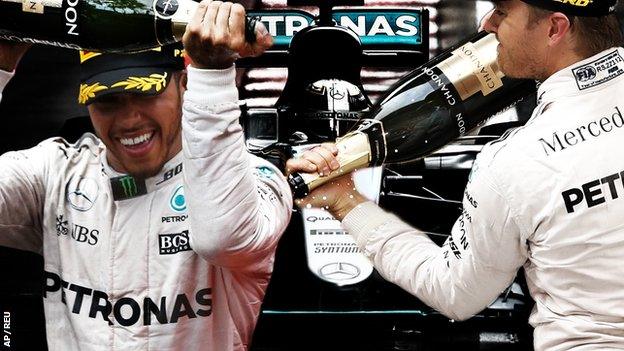
Lewis Hamilton has won back-to-back Grand Prix after Nico Rosberg won the opening four races of the season
Four weeks ago, Lewis Hamilton had just crashed out of the Spanish Grand Prix with team-mate Nico Rosberg and was staring down the barrel of a 43-point deficit in the championship with nearly a quarter of the season gone.
Two races later, that deficit has been cut to just nine points, after two very different but equally-impressive victories in Monaco and Canada.
In both, Hamilton owed his win to a stroke of fortune - in Monaco, a bungled pit stop by Red Bull; in Montreal, a strategic blunder by Ferrari.
But in each case, Hamilton still had plenty to do, and has performed his task with the sort of judgement and expertise that befits a three-time world champion.
Even after falling nearly two race wins behind Rosberg after a troubled first four races, there was always the sense that somehow Hamilton would come through in the end this year.
That now looks a much less arduous task than it did after Rosberg's four opening victories, even if there are pot holes ahead for Hamilton.
The turbo and hybrid failures he suffered in qualifying in China and Russia mean he is already short of engine parts and by inevitably exceeding his permitted allowance, he will receive grid penalties at some point.
But he has now taken pole at every race in which he has not suffered a mechanical problem in qualifying; and won two straight in impressive style.
"I'm really overwhelmed to think just how difficult this season was before these last two races," he said.
"I'm super-focused. I felt that was one of my best races for a while, maybe not as good as the last one, but I'm still really happy with it."
- Published12 June 2016
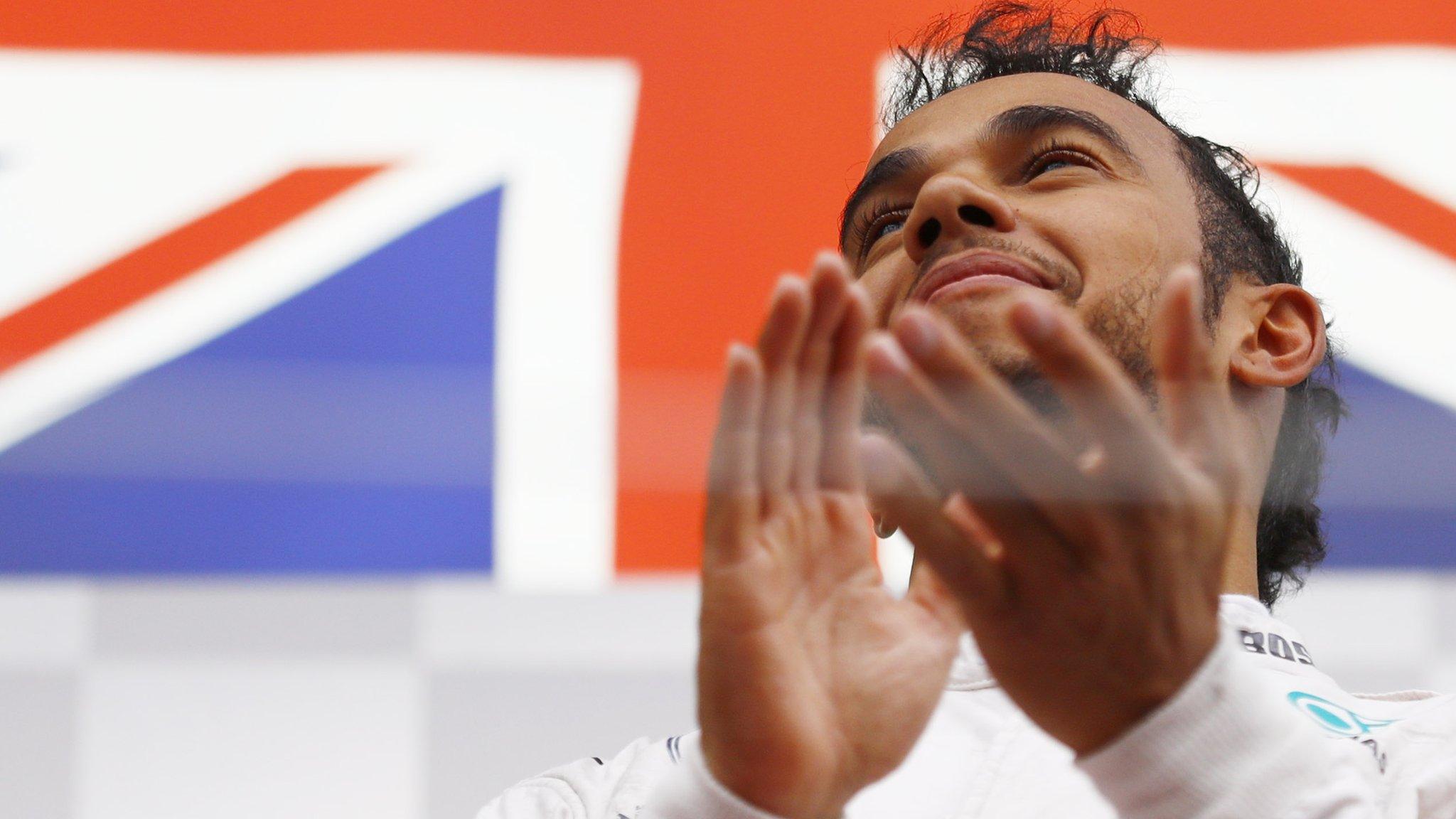
- Published13 June 2016
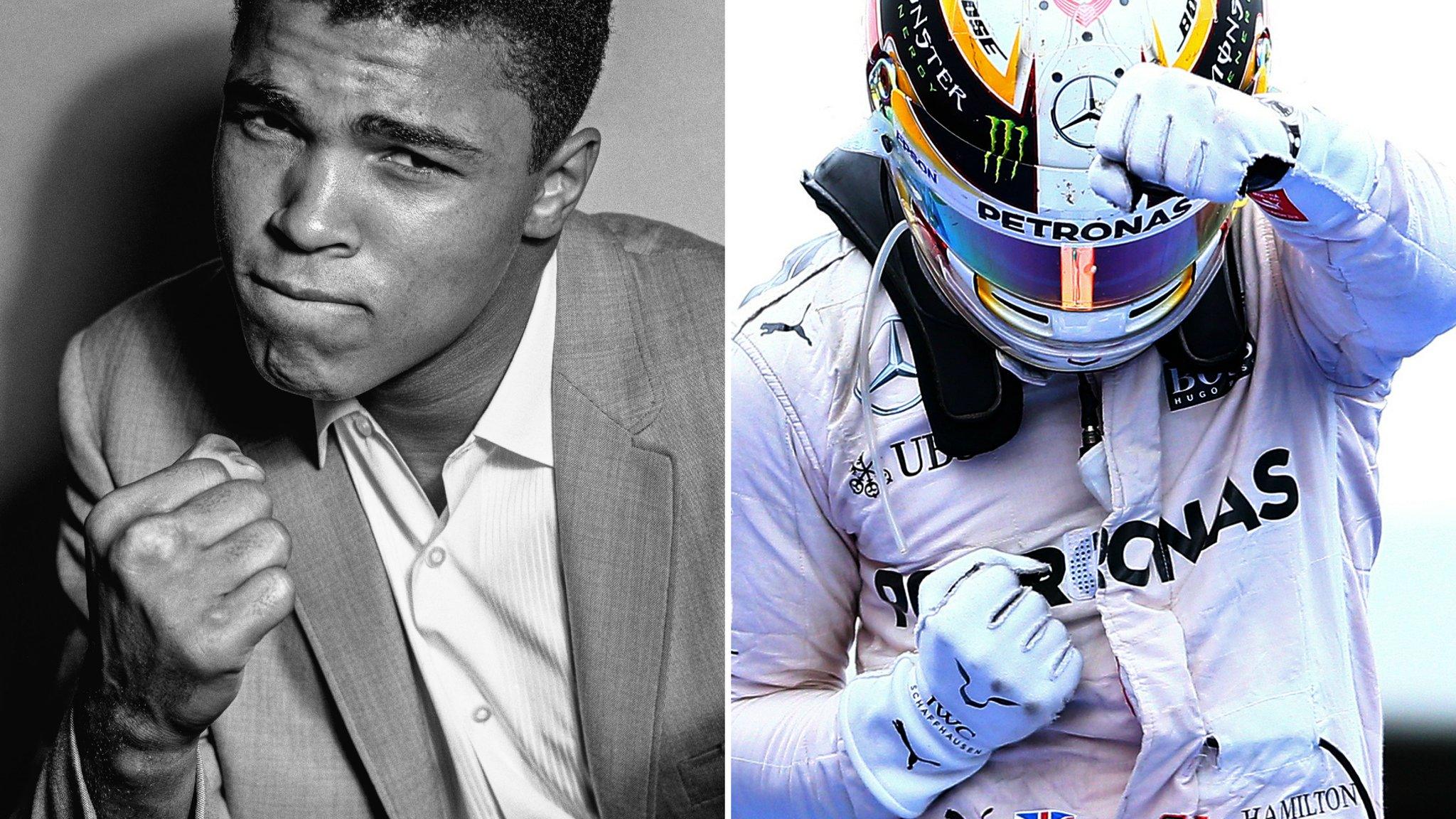
- Published21 June 2016
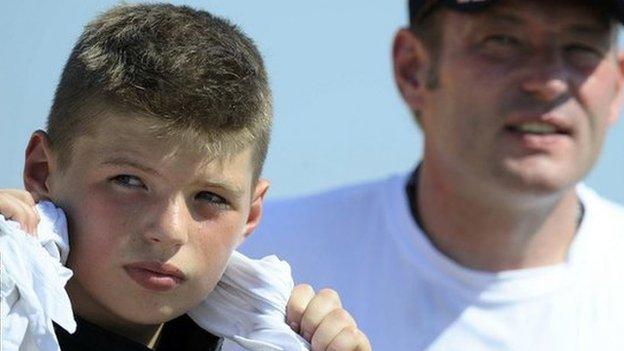
- Published11 June 2016
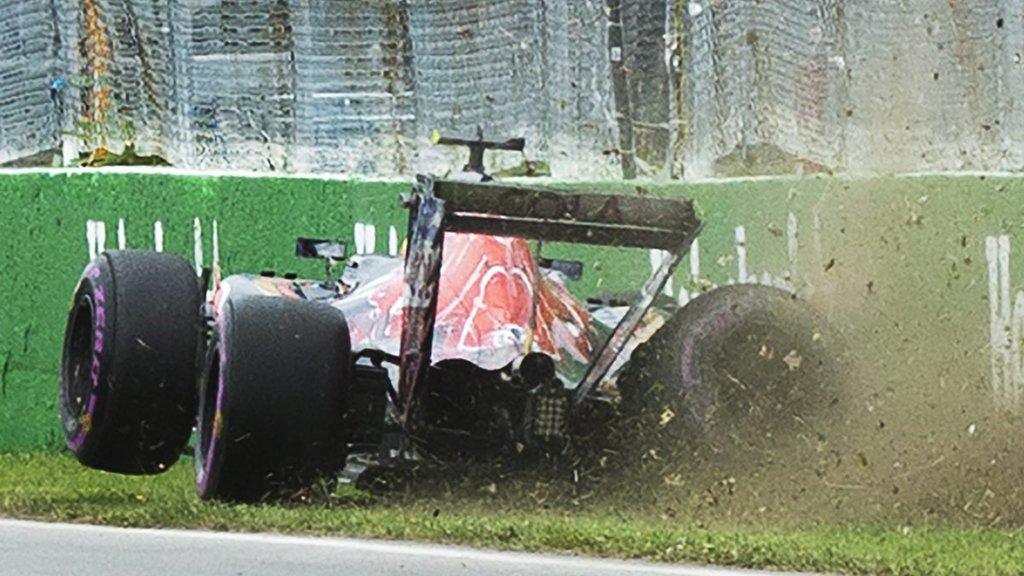
- Published11 June 2016
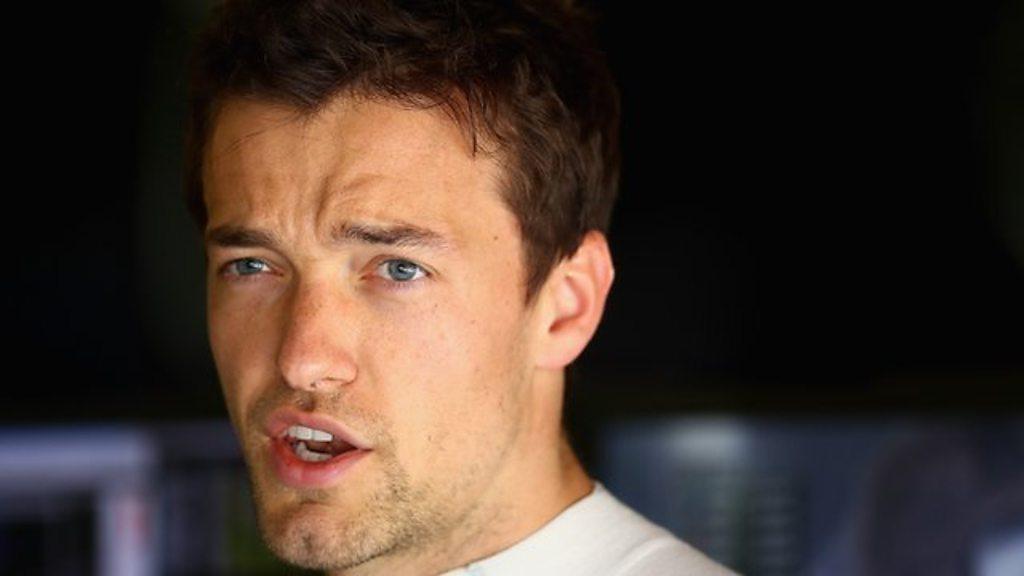
- Published18 December 2015

- Published2 November 2018

- Published13 May 2016

- Published26 February 2019
